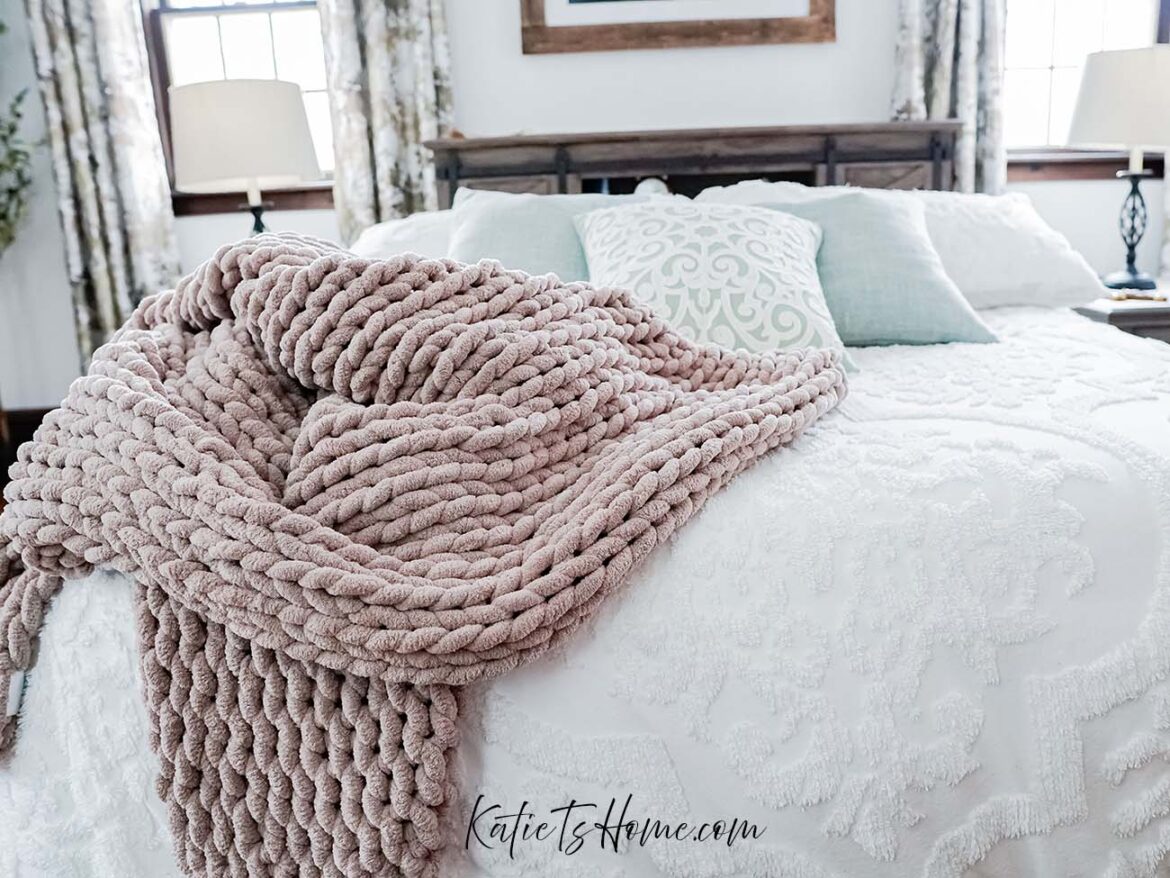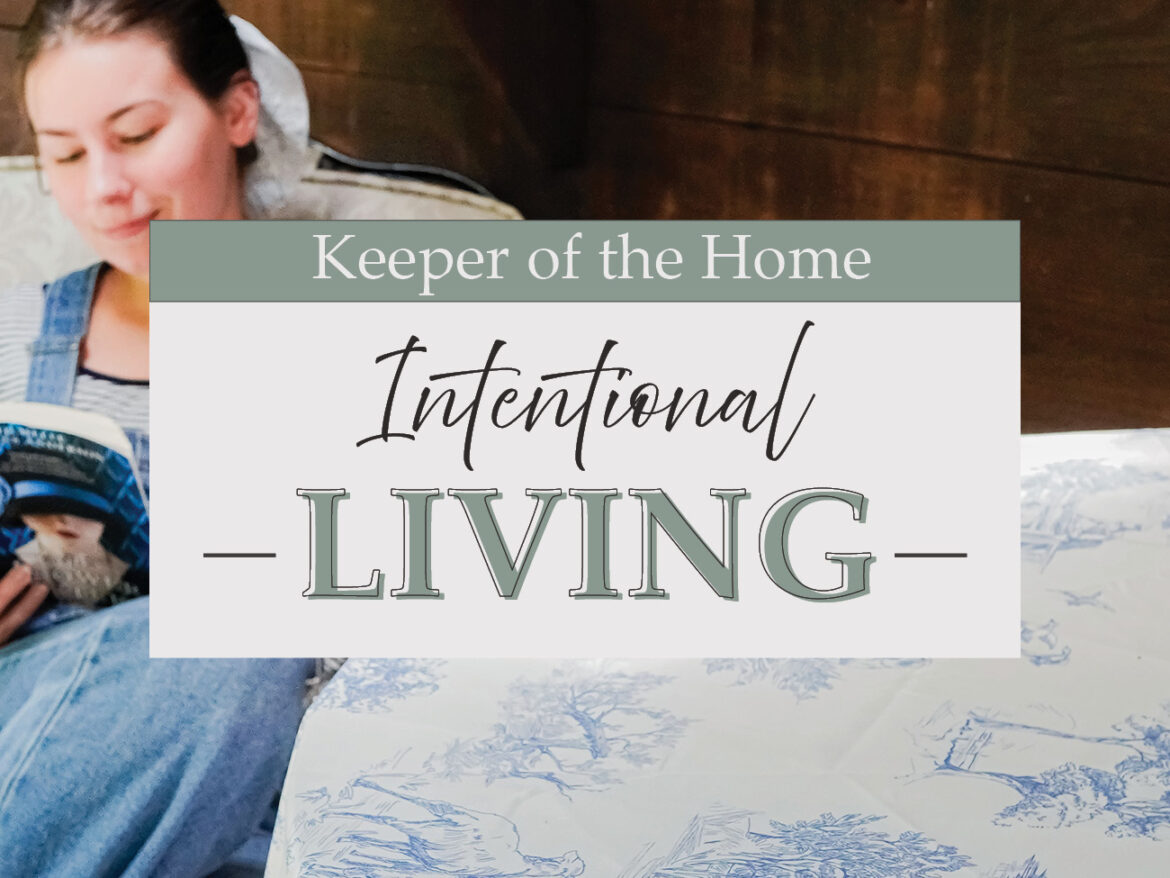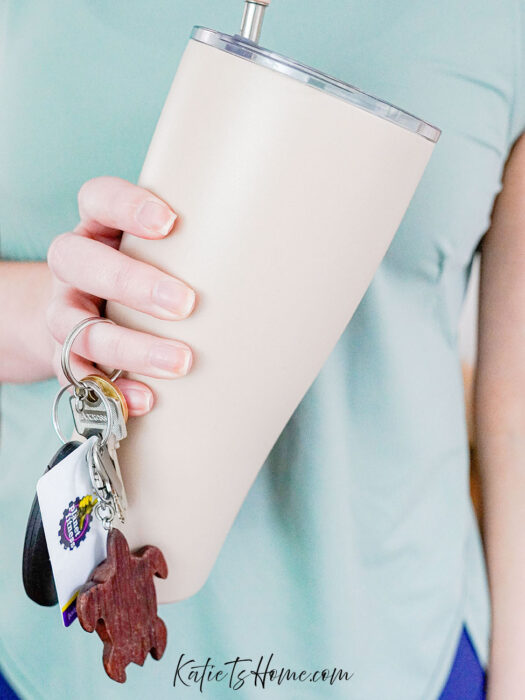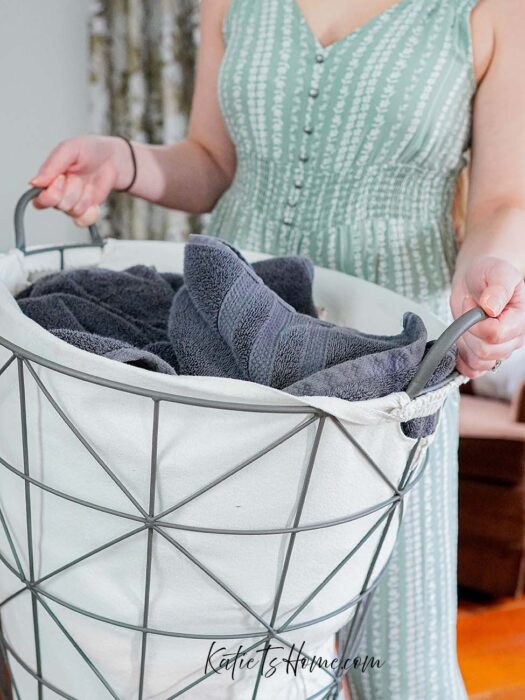Your cart is currently empty!


Intentional living is what every homemaker needs in their repertoire of daily practices. Without living intentionally, life flies by in the blink of an eye because we are all just going through the motions on autopilot. That is no way to live. This is why, here at Katie T’s Home, I will give you the foundational tips on how to apply intentional living in your homemaking role. So, without further ado, let’s jump into the tips you need to know for living with intention!
This post may contain affiliate links, which means I’ll receive a small commission if you purchase through my links, at no extra cost to you. Please read full disclosure for more information.
I also ask that you please leave your thoughts in the comment section below. I’m always trying to produce helpful content for my readers, and without knowing what you think, it’s hard to know what you find helpful/not helpful. So please leave your thoughts below!! 🙂
For my 33rd fun fact, I want to share that I love sushi!
It’s a new love as of 2 years ago, and my only regret is not trying it sooner! Luckily, I can make up for lost time!!
The first tip on living with intention is to know your why. Without it, the other tips later on in this article will be less meaningful.
Why do you get up in the morning and do what you do? Why do you continue to do what you do? Why are you choosing to do what you do?

Knowing your purpose will influence the decisions about what you should and shouldn’t take on.
For example, my “why” is because I want to cultivate a life that I love. I love what I do. I love that I can share and inspire other young women with knowledge and tips on facing certain issues.
And, I love waking up knowing that I am abundantly blessed with another beautiful day hand-crafted by God himself.
![[Promote this Image] Christ Centered Wife Advice- Pray the Rosary-Katie T's Home](https://katietshome.com/wp-content/uploads/2024/03/Promote-this-Image-Christ-Centered-Wife-Advice-Pray-the-Rosary-Katie-Ts-Home-525x700.jpg)
If you’re struggling to think of your why, then perhaps it’s time to make a change.
Spend more time with the good people in your life. Make more room for alone time with God. Try picking up that hobby you’ve been wanting to do for a long time.

It doesn’t always have to be expensive. For example, if you want to take dance classes but, can’t afford them, then search for different dance routines on YouTube and dance in your living room! You may feel a little silly at first (speaking from personal experience), but it’ll be worth it!
Knowing how to self-reflect is a huge step in living with intention. The two go hand-in-hand, and you can’t have one without the other.
Self-reflection requires you to self-monitor your behaviors and emotions. Learning your behaviors and emotions is essential in knowing how to live intentionally.
When monitoring your behavior, think about the things you like about yourself. Think about the things that you know you can improve upon.

For example, if you self-reflect and recognize that you have poor posture, actively think about how you are standing and correct your posture when you’re slouching. If you can get in the habit of doing so, you will be more intentional.
Emotions, on the other hand, are much more complex. It’s not as simple as fixing that particular situation. This self-monitoring is essential in those moments where we feel our emotions are strongest.
Are they good emotions we want to continue, like happiness and joy? Or, are they negative emotions like stress and sadness?

So many times, we feel a strong negative emotion, and instead of doing the uncomfortable or inconvenient self-reflection to determine why we have that emotion, we push it down to the depths of our being to go unresolved.
Instead, take a second and ask yourself why you feel the way you do. Take a deeper dive into your emotion at that moment and try to untie the meaning behind it. Once you can give that emotion meaning, it will set the course for how you move forward in similar situations.
Knowing how to prioritize is the second to last tip in this article on living with intention.
I won’t go into detail on how to prioritize because I have a full guide on learning how to prioritize as a Christian homemaker, but I will explain why knowing it is essential in intentional living.
Many of us struggle to step away from autopilot and take a stand for how we want to spend our time.
People pleasing is a common problem in today’s world. By feeding into this ideology, we give the other individual’s opinion authority over our wants and desires.
As a result, this leaves someone doing things they don’t want to do, all in the name of what others will think.
However, if we have our priorities in order and know our “why” as discussed earlier, this will help us say no to the things that don’t bring value to our lives.
Plus, it will free up our time to do those things that give us homemakers purpose and value. We are not simply going through the motions because of other people’s beliefs but rather being intentional in how we want to spend our time.
Being mindful is the last stepping stone to living with intention.
While the two are very similar, being mindful is smaller scale compared to living with intention, which encompasses the big picture.

Being mindful is buying the ingredients for the recipe you intend to make for dinner, compared to being intentional in how you cook the dinner.
You observe your surroundings and think about the actions you are initiating in and the potential implications it may have.
Some mindfulness is learned, while, on the contrary, some learned behaviors may obstruct mindfulness.
For example, you may have grown up in a house that added felt furniture pads to the bottom of the furniture legs to prevent scratching. When you move out and get your furniture, you know to be mindful and use the felt pads because it was learned.
On the flip side, you may grow up doing something and continue doing that thing because it’s what you were used to. For example, I grew up in a household that peeled the carrots. One day, as I was peeling carrots, it occurred to me that it was completely unnecessary. As long as I washed the carrots well, there wasn’t a need to do the extra step.

Learned mindfulness is its step towards intentional living. However, mastering what I call, situational mindfulness will help you make leaps and bounds towards being more intentional with how you live your life.
When you are in a situation where you have to exercise that part of the brain, you are taking the time to be aware of your surroundings and the potential pros and cons of responding in a certain manner.
Learning the art and skill of living with intention will help you slow down and be more aware of your surroundings and situations in life. I hope this post has helped you and, I look forward to hearing what you have to say in the comments below!!
Leave a Reply